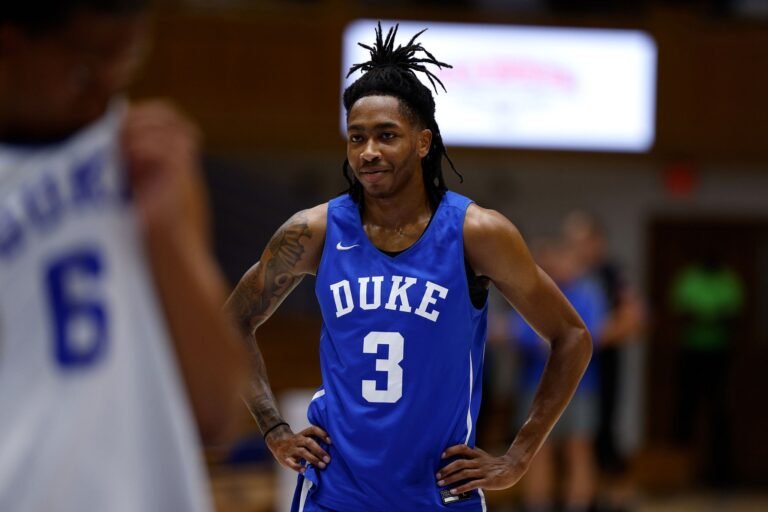Breaking news has rocked the college basketball world as Duke forward Isaiah Evans has officially secured a multi-year NIL extension valued at $4.5 million with Panini America, one of the nation’s leading sports memorabilia and collectibles companies. The deal not only underscores Evans’ rising profile as a star athlete but also highlights the growing impact of NIL deals on the landscape of college sports. With this agreement, Evans cements himself as one of the top-earning players in the NCAA, joining an elite group of student-athletes who have turned their on-court performance into off-court financial power.

In a surprising and unprecedented move, Evans announced that he will be donating 15% of his NIL earnings to Purdue Basketball’s program, a gesture that has stunned fans and sparked heavy debate across the college basketball community. While it is not uncommon for players to give back to their own programs, the fact that a Duke player is directly contributing to Purdue — one of their notable rivals in NCAA tournament play — is both historic and controversial. This bold move has instantly made headlines nationwide, as analysts scramble to interpret Evans’ motivations and the broader implications of this donation.
For Evans, the Panini America partnership is a natural fit. Known for his electrifying style of play and his growing fan base, his image has quickly become marketable beyond the Duke community. The memorabilia deal will include exclusive trading cards, autographed gear, limited-edition collectibles, and digital NFT-style assets, giving fans multiple ways to engage with his brand. Panini executives hailed the signing as a major victory, noting that Evans’ potential both on and off the court aligns with the company’s long-term strategy of investing in college stars before they turn professional.

The donation to Purdue has been described by Evans as a gesture of respect. In his statement, he acknowledged Purdue’s long-standing tradition of producing competitive teams and praised their commitment to college basketball excellence. Some believe this move may be part of a broader effort by Evans to build bridges in the college basketball world, while others see it as a strategic play to gain goodwill and expand his influence beyond his own program. Whatever the motivation, the gesture is certain to fuel intense conversations among Duke supporters, Purdue fans, and the wider NCAA community.

Critics, however, have raised questions about the legality and fairness of such a donation. NCAA officials are expected to review the situation, as this may set a precedent for how NIL money can be used across different institutions. Some have expressed concern that this could open the door to cross-program financial influence, potentially altering the balance of competition. Others argue that Evans is within his rights to use his personal NIL earnings however he chooses, and that this act of generosity should be celebrated rather than questioned.
Looking ahead, this move positions Isaiah Evans as not just a basketball star but a cultural figure who is shaping the future of college athletics. His $4.5 million deal proves the growing economic power of top-tier NCAA athletes, while his donation to Purdue may redefine how players choose to invest their resources. Whether celebrated as a revolutionary act of sportsmanship or critiqued as a disruptive precedent, one thing is certain — Evans has made a statement that will not soon be forgotten in the world of college basketball.
